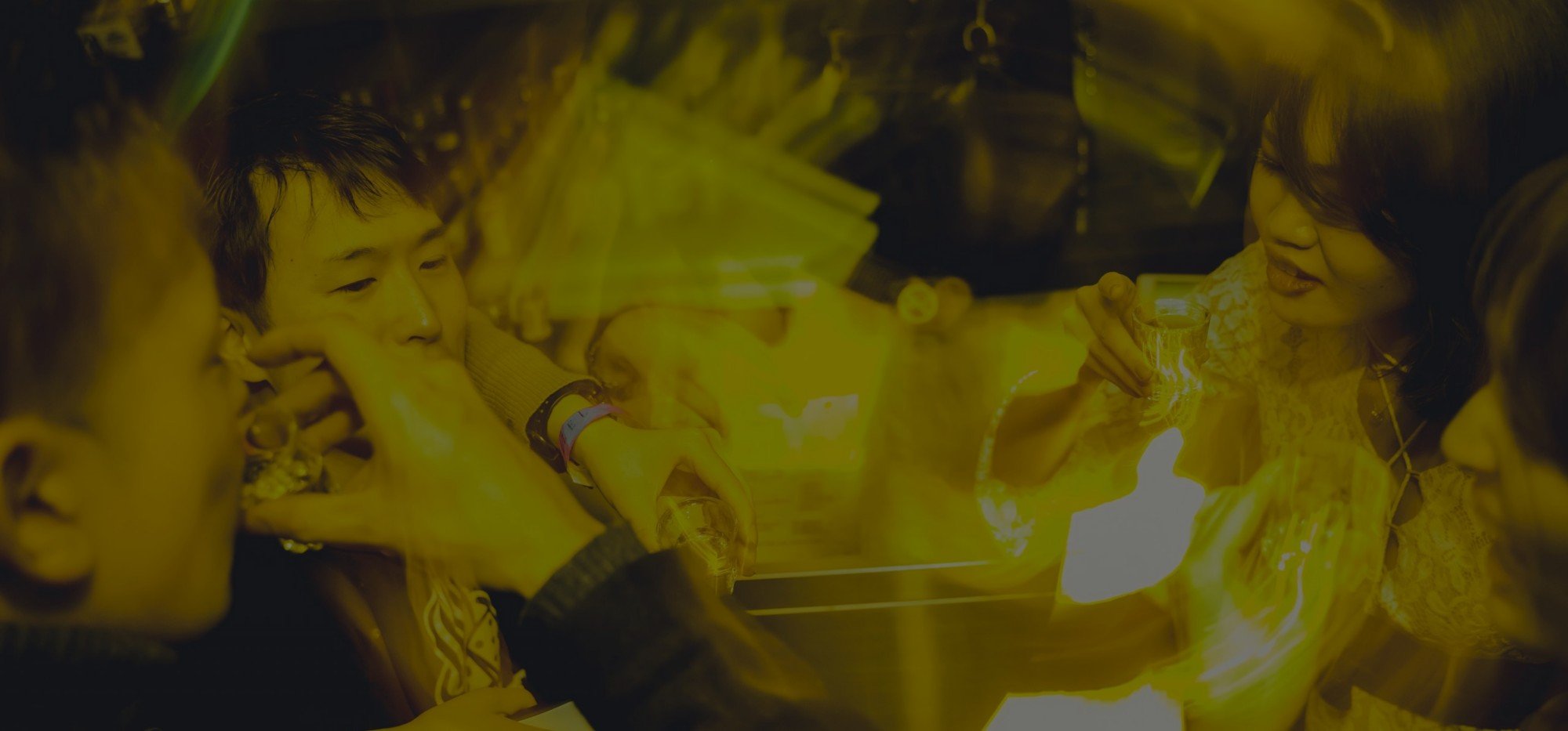If you’ve ever taken a drink to help calm your worries, you already know how alcohol and anxiety can be linked. Alcohol is often presented as a reasonable solution to dealing with undue anxiety and stress.
While having a drink may provide some short-term anxiety relief, alcohol can exacerbate anxiety in the long term. Furthermore, using alcohol as a form of self-medication can lead to alcohol use disorder, which can cause several lasting social and health problems.
How Are Alcohol and Anxiety Related?
People often drink to relax their inhibitions, wind down after a long day, or reduce the symptoms of social anxiety. But does alcohol really help with anxiety? And how does alcohol increase anxiety over the long term?
To understand how alcohol and anxiety are related, we first need to take a closer look at how alcohol affects the brain. Alcohol is a central nervous system depressant, which means it slows down the body’s automatic, life-preserving functions. Alcohol creates a sedating effect on the nervous system by altering the concentration of a chemical in the brain called GABA.
The Role of GABA in the Brain
GABA, short for gamma-aminobutyric acid, is one of the brain’s neurotransmitters. Neurotransmitters are the chemical messengers in the brain that send instructions and play a key role in our moods, feelings, and behaviors. Other neurotransmitters that are more well-known include dopamine, serotonin, and norepinephrine (adrenaline).
GABA is the brain’s primary inhibitory transmitter: it slows down the activity of other brain cells. This process can make you feel relaxed, slow down your thoughts, and temporarily relieve anxiety. Essentially, the role of GABA is to prevent overstimulation and provide a sense of calm and ease.
Low levels of GABA are associated with several different clinical diagnoses, including:
- Anxiety disorders
- Schizophrenia
- Major depressive disorder
- Seizures
- Epilepsy
- Autism spectrum disorder
While these diagnoses are very different, they have one symptom in common: a tendency toward becoming overstimulated.
How Alcohol Affects GABA
Alcohol is an indirect GABA agonist: when people drink alcohol, they artificially increase the amount of GABA released in the brain. This release of GABA slows down other brain cells, relieves anxiety, and provides a sense of calm.
While these effects may sound like highly desirable outcomes for people with anxiety disorders, they come at a severe cost. When people drink repeatedly, the brain reduces the number of GABA receptors available to “catch” GABA, which results in a lower baseline of GABA effects.
Eventually, people have normal levels of GABA activity only while they are under the influence of alcohol. They may have a significant GABA deficit while they are sober.
So what does this mean? Eventually, alcohol and anxiety form a negative feedback loop: the more people drink, the more they feel anxious when not drinking. Even worse, alcohol’s anxiety-reducing effects wane over time, which causes people to drink more to feel relief.
Anxiety and the GABA Receptor
Fundamentally, anxiety disorders are characterized by a frequent state of worry, fear, or apprehension. People with anxiety often feel their thoughts race out of control, have a sense of impending doom, or experience intense restlessness. Anxiety can also cause sleep disruption, irritability, and many other physical symptoms.
The different types of anxiety disorders include:
- Generalized anxiety disorder
- Social anxiety disorder
- Panic disorder
- Specific phobias
Post-traumatic stress disorder, categorized in the DSM-5 as a trauma- and stressor-related disorder, can also cause extreme anxiety.
Anxiety disorders, in part, are due to low levels of naturally occurring GABA. Many medications like benzodiazepines, anticonvulsants, and sedatives treat anxiety by targeting the GABA receptors. However, most of these drugs can cause addiction and are typically only prescribed for short-term or emergency use.
Self-Medicating Anxiety with Alcohol
When we understand how alcohol affects the neurotransmitter strongly associated with anxiety, we can see how alcohol and anxiety are linked physiologically and psychologically. With this knowledge, it makes sense that many people turn to alcohol to help deal with the symptoms of anxiety disorders.
However, drinking to self-medicate anxiety puts people at high risk of developing alcohol use disorder and worsened anxiety issues.
Drinking to alleviate anxiety can quickly become a destructive downward spiral. People will drink to reduce their anxiety, only for their anxiety to become worse when they are sober. They then need to drink even more alcohol to experience relief, further worsening their anxiety over time.
Alcohol is a highly addictive substance. Increased drinking leads to greater tolerance, meaning greater amounts of alcohol are needed to achieve the desired effect. Over time, people build a dependence on alcohol and will experience withdrawal symptoms if they stop drinking.
Prolonged alcohol use can cause long-lasting brain changes that can make it more difficult for you to quit on your own.
Symptoms of an Alcohol Use Disorder
The symptoms of alcohol use disorder can be devastating. They can affect your physical health, mental health, your social life, and even your occupation. Many people who develop alcohol addiction won’t be able to stop on their own and will need the help of professional addiction services to recover.
The symptoms of alcohol use disorder include:
- Drinking more than intended or for longer than intended
- Craving alcohol
- Increasing tolerance, meaning you need to drink more each time to get the desired effect
- Dangerous withdrawal symptoms if you suddenly stop drinking
- Loss of interest in other activities
- Continued drinking despite worsening physical or mental health symptoms
- Frequent, unsuccessful attempts to stop or cut down your drinking
These are just a few of the symptoms of alcohol use disorder. Many other symptoms and downstream effects can severely impact an individual’s health and ability to function.
Alcohol and Anxiety Disorders
There is an obvious connection between alcohol and anxiety disorders. People with both alcohol use disorder and an anxiety disorder need specialized care to recover. Both conditions need to be treated simultaneously to achieve the best results. Furthermore, people are at higher risk for relapse if a co-occurring mental illness is not addressed during addiction treatment.
This style of treatment is known as dual-diagnosis treatment. At a dual-diagnosis facility, a team of addiction and mental health professionals collaborate to provide evidence-based therapies for alcohol use disorder and other mental health concerns like anxiety disorders.
In this way, people can learn to manage cravings, develop healthy coping mechanisms, and reduce the key triggers of anxiety that so often drive alcohol use.
Get Support for Alcohol and Anxiety
Alcohol and anxiety disorders are both highly treatable, and people can recover if they get the specialized care they need. If you’d like to learn more about how All Points North uses an integrated approach to treating alcohol use disorder and anxiety disorders, reach out to our team to learn more about our extensive treatment options today. There is a path forward, and we can help.
Reference
- Nuss, Philippe. “Anxiety disorders and GABA neurotransmission: a disturbance of modulation.” Neuropsychiatric disease and treatment vol. 11 165-75. 17 Jan. 2015, doi:10.2147/NDT.S58841
- Allen, Mary J., et al. “GABA Receptor.” National Library of Medicine, National Center for Biotechnology Information, 17 Feb. 2022, https://www.ncbi.nlm.nih.gov/books/NBK526124/.
- “Dual Diagnosis.” MedlinePlus, U.S. National Library of Medicine, 2 Oct. 2019, https://medlineplus.gov/dualdiagnosis.html.




